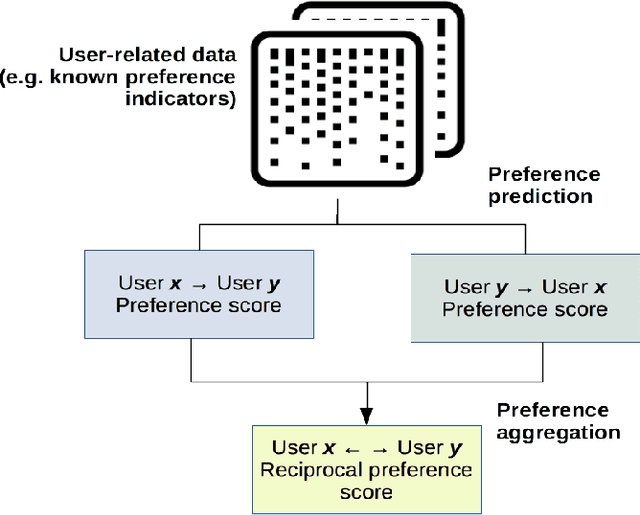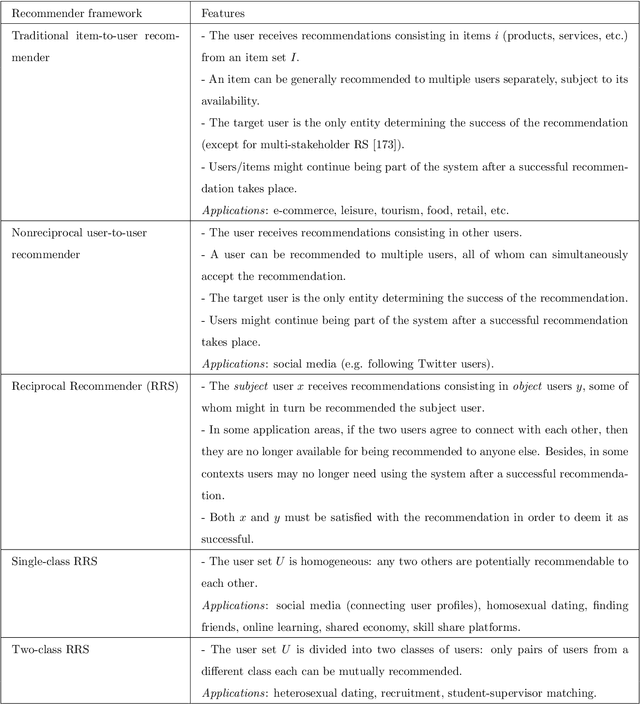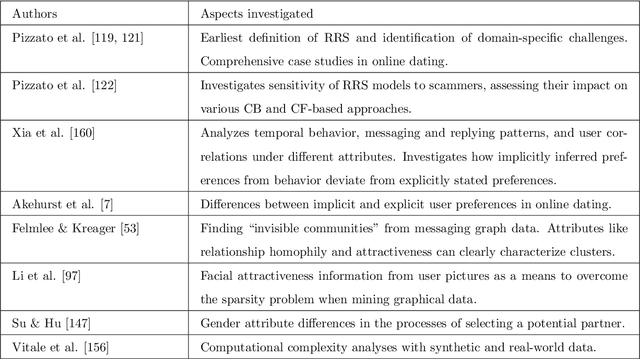Ivan Palomares
Reciprocal Recommender Systems: Analysis of State-of-Art Literature, Challenges and Opportunities on Social Recommendation
Jul 17, 2020



Abstract:Many social services including online dating, social media, recruitment and online learning, largely rely on \matching people with the right people". The success of these services and the user experience with them often depends on their ability to match users. Reciprocal Recommender Systems (RRS) arose to facilitate this process by identifying users who are a potential match for each other, based on information provided by them. These systems are inherently more complex than user-item recommendation approaches and unidirectional user recommendation services, since they need to take into account both users' preferences towards each other in the recommendation process. This entails not only predicting accurate preference estimates as classical recommenders do, but also defining adequate fusion processes for aggregating user-to-user preferential information. The latter is a crucial and distinctive, yet barely investigated aspect in RRS research. This paper presents a snapshot analysis of the extant literature to summarize the state-of-the-art RRS research to date, focusing on the fundamental features that differentiate RRSs from other classes of recommender systems. Following this, we discuss the challenges and opportunities for future research on RRSs, with special focus on (i) fusion strategies to account for reciprocity and (ii) emerging application domains related to social recommendation.
 Add to Chrome
Add to Chrome Add to Firefox
Add to Firefox Add to Edge
Add to Edge